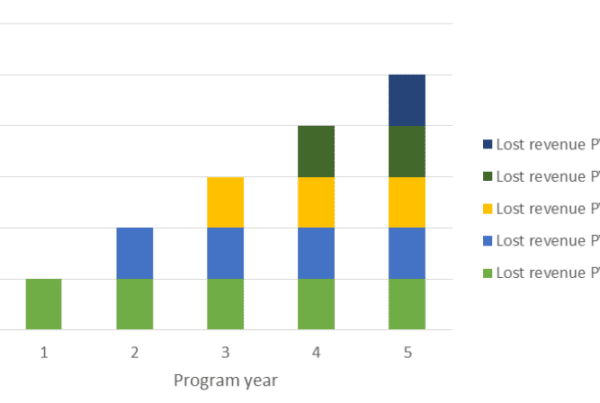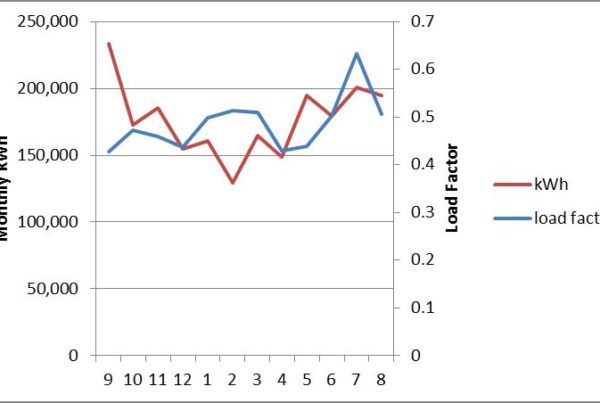Having been in the EE industry for 15+ years and regularly attending conferences around the country (for just a few years), I find myself being volunteered to contribute to these conferences with planning, presenting papers, and “peer” reviewing others’ papers. The planning, peer reviewing, and being peer reviewed are learning experiences as I gain awareness of how others think and what they find interesting and important. I say “awareness” and not necessarily “understanding” because quite frankly, the way some people think, baffles me.
For example, I was talking with a gun collector the other day and prior to this I had thought people collected weapons like some people collect motorcycles. They just clean and polish them weekly, talk to them like house plants and adore their magnificence. Wrong. He likes going to the range and shooting them. I can understand this because I on the other hand enjoy going to the beach and skipping silver dollars off the water. I get a rush from feelings of wealth and power as I do this. This is not all. I take a Porche 911 to the beach with my rolls of silver dollars because it would be really deflating to climb into the 2002 Honda Civic after my fill of dollar skipping.
The dollar-skipping Porsche story is a lie but I was just trying to draw a comparison to the weapon thing and came up short.
I am in the midst of reviewing some papers for the International Energy Program Evaluation Conference (IEPEC), but fortunately they are not boring. In fact, I even used the overarching results from one of them as a lever in a recent proposal I wrote. I reviewed them and presented one round of comments to the authors and I truly hope they found my comments to be beneficial and constructive to improving their papers. My comments included suggestions like moving and rearranging some things, rewriting some sentences I had to read several times to understand, separating these from those, and I found a few typographical errors. I thought I had written quite a few comments and I hoped they weren’t PO’d, and after hearing back, I don’t think they were.
However, I also had the chance to review comments others had written for peer review of papers our staff (not I) wrote for the ACEEE Summer Study for Industry. Whoa! Some were quite nasty, and likely written by an academic / government prude, anonymously of course. Some of the findings, paraphrased to be more like Wonder Bread than a habanero pepper, are provided below.
No references documenting similar work.
The topic of the paper included a financing program for energy efficiency programs that has worked spectacularly. The paper essentially started by saying utility financing programs suck, which outside the program(s) discussed in the paper is a universal truth. Do I need a reference to prove the Minnesota Vikings have never won the Super Bowl? Do I need a reference to say they blew three conference championship games since 1998?
I use references when I’m uncertain of something or if I am saying something controversial or hard to believe or as you can see below, to make a point. If I know what I’m talking about, I don’t bother with references.
Papers should include mostly the author’s expertise, gained knowledge, and wisdom of his experiences, not a compilation of other peoples’ work. Do we want high school term papers or real-life EE market experiences and lessons learned? Quite frankly, when I reviewed the IEPEC papers I paid no attention whatsoever to the references (don’t tell the prude police). There were plenty of fresh data to chew on and sitting here today a couple weeks after those reviews, I don’t think they needed any references at all.
No data to back up the premise.
This was ridiculous. Data were clearly provided to demonstrate the wild success of the reported “financing” program. There wasn’t much data to show other financing programs suck, but I don’t need a study to tell me beer from a major league baseball game is more expensive than beer purchased from a grocery store either.
There is plenty of research on barriers to EE in scholarly publications from think tanks like ACEEE or from the DOE and national laboratories.
The DOE? Is this the same DOE that promoted the destruction of millions of dollars worth of working assets as economic stimulus – i.e., throwing rocks through windows to spur economic growth? I used to work for the DOE. I don’t need the DOE to tell me the barriers to EE. Scholarly? Ha ha. It is to laugh. (Daffy Duck)
I’ve seen lists of EE barriers and they typically miss one of the 800 lb gorillas. One of the most notable lists of barriers comes from the 2009 McKinsey study. A basic barrier I don’t see in their list is lack of time due to competing priorities of end users. Since lack of time isn’t noted, is it therefore not a barrier?
One ACEEE paper, which in fact looks pretty good, does not mention risk aversion as a barrier. I can tell you, risk aversion is a major barrier. Many projects will not go forward without a performance guarantee. Since risk aversion is not noted, is it not a barrier? Maybe it is merely an obstacle!
Lacks the intellectual rigor that ACEEE requires.
Don’t rock the boat. I think I’m going to throw up.
This sort of comment casts a cloud over ACEEE in my mind. To be clear, I like ACEEE. They put on good conferences and produce/sponsor some informative papers – stuff I can use.
Reads like an advertisement and offers no new information or analysis.
This is entirely bogus. The word “Michaels” does not appear in the paper. Yet I review one (1) paper from the last summer study for industry – one that is close to home involving Focus on Energy – and “Focus” is noted no fewer than 31 times. For example, Focus:
- promotes savings and technologies through
- is a statewide energy conservation program (not efficiency?)
- is managed by SAIC
- program’s success comes through their active (should be “its”, not “their”)
- program’s success results from leveraging
- program tends to be vocal promoters
- energy advisor has reviewed and blessed (blessed? This is the intellectual rigor he talks about?)
- absent a program such as Focus on Energy, would not have been installed
- blah, blah, Focus, blah, blah
Nope. No self promotion here! I believe the prude should review some past works.
Ok. I had to sneak a peak at one more paper; this time from one of the benevolent, intellectually superior, omniscient, and of course objective DOE laboratories. This one was on the salvation that wireless technology will bring. Have a seat; empty your mouth of any food or drink. The paper was co-authored by a vendor of the technology using analysis provided by Honeywell. Suely, there is no agenda or self interest in this one.
To once again clarify myself, I do not begrudge anyone for tooting their horn. Anyone who thinks busy professionals write papers and present results at conferences with no self interest is a naïve stupe.
There is limited evidence to support the conclusions. There is a small out of date case study but it lacks justification for any of the assertions.
C’mon dude! The results: Traditional financing programs: 0. Subject “financing” program: savings of 1.5% of sales for many years. In case you are new to EE program goals, 1.5% is enormous, like the Oregon Ducks averaging 47 points per football game or the Badgers scoring 83 points in one football game last year. Both are incredible. Don’t believe it? Look it up yourself, prude!
I do not want to read high school term papers of reconstituted cud. I do not want to read a doctoral thesis or six-line sentences full of four syllable words. I want to read something I can use or at least find interesting.





